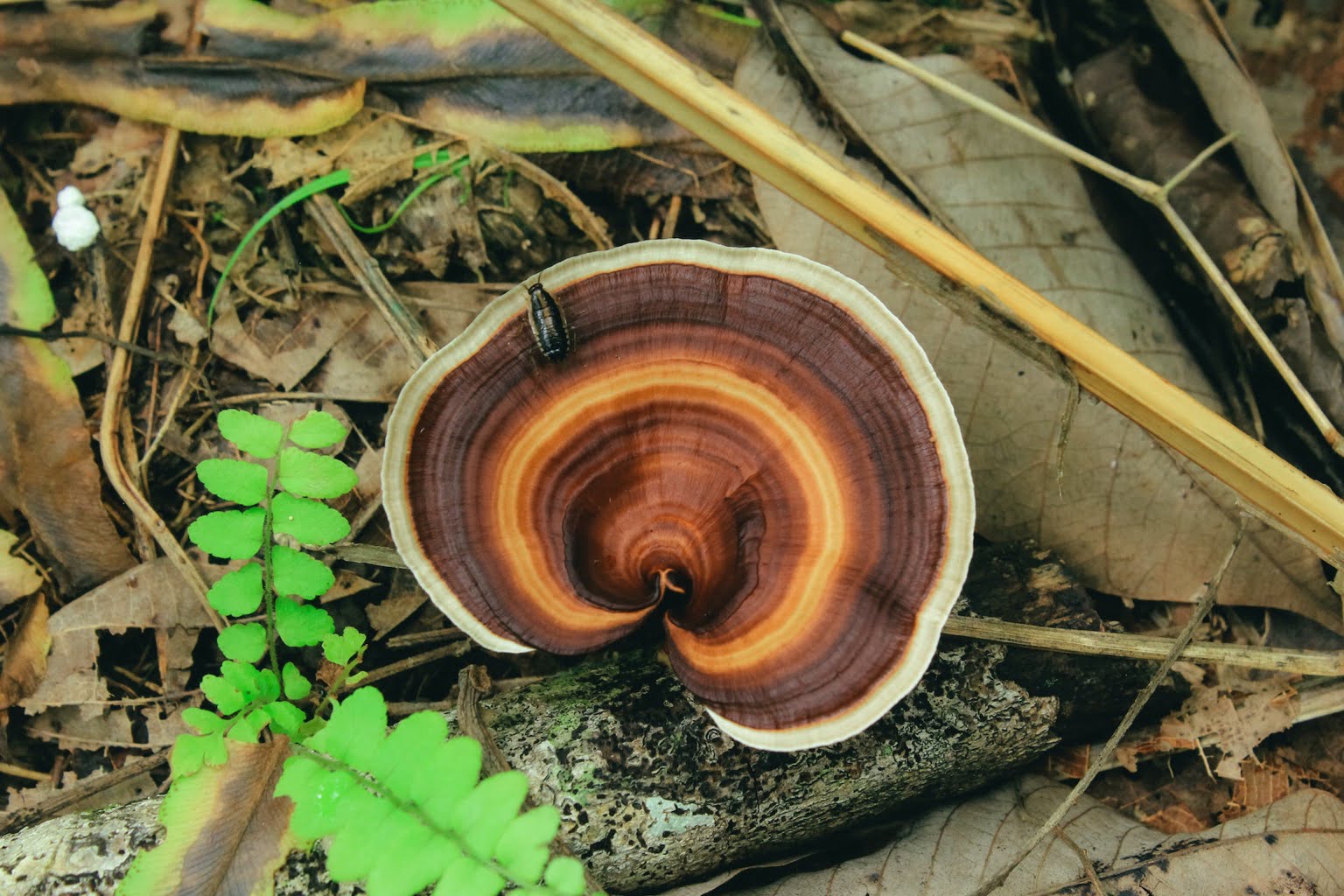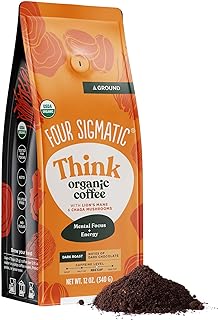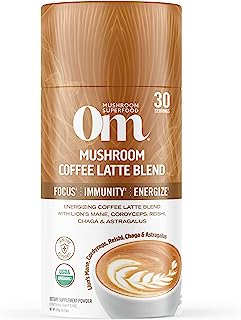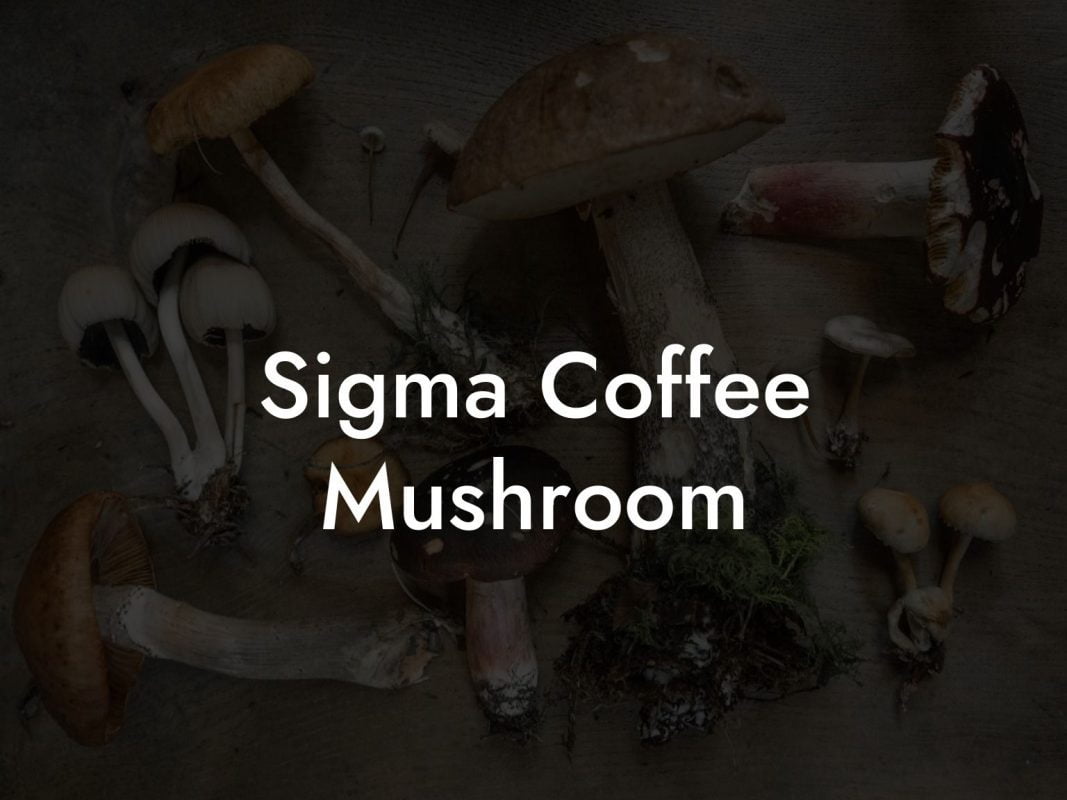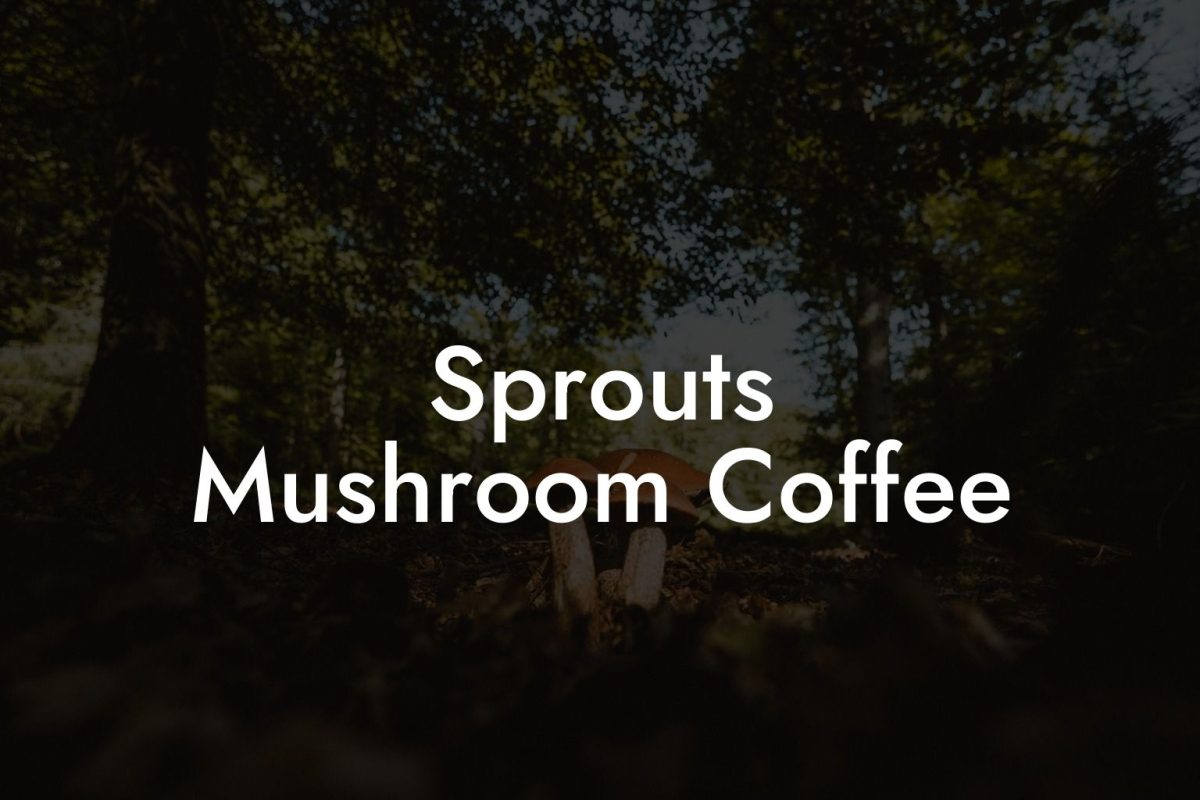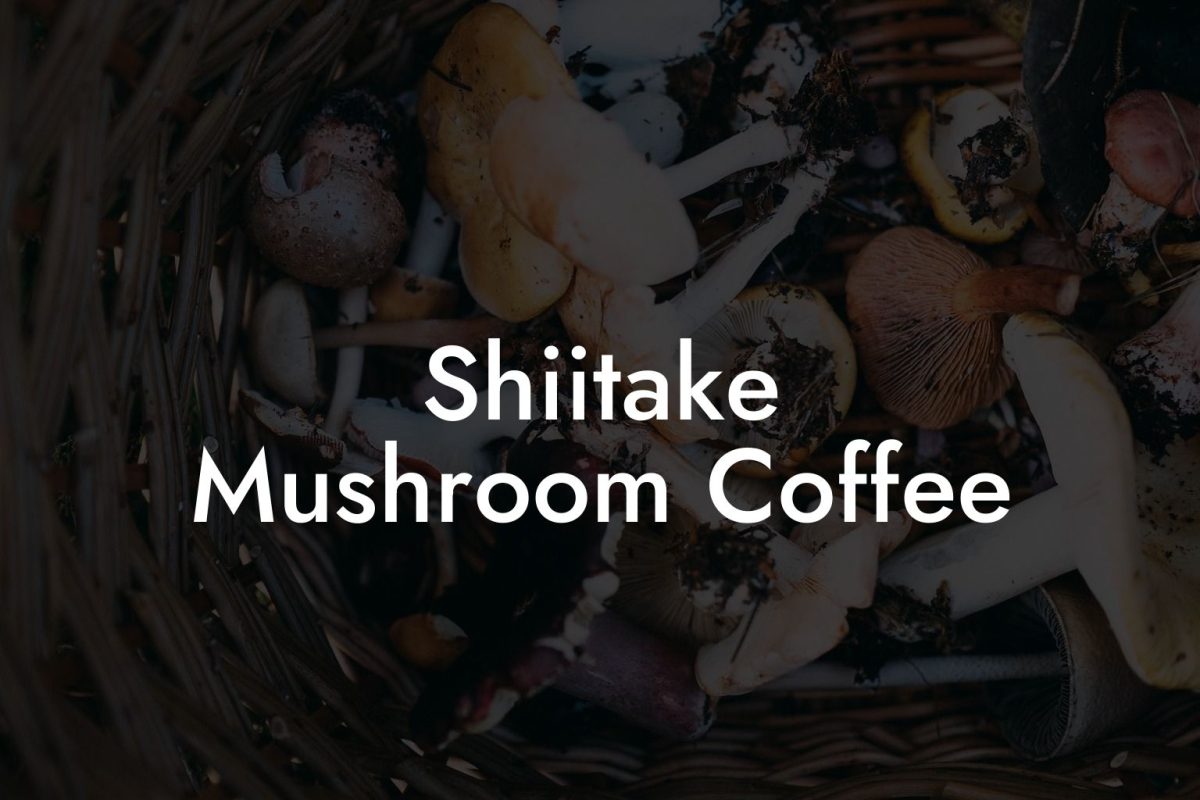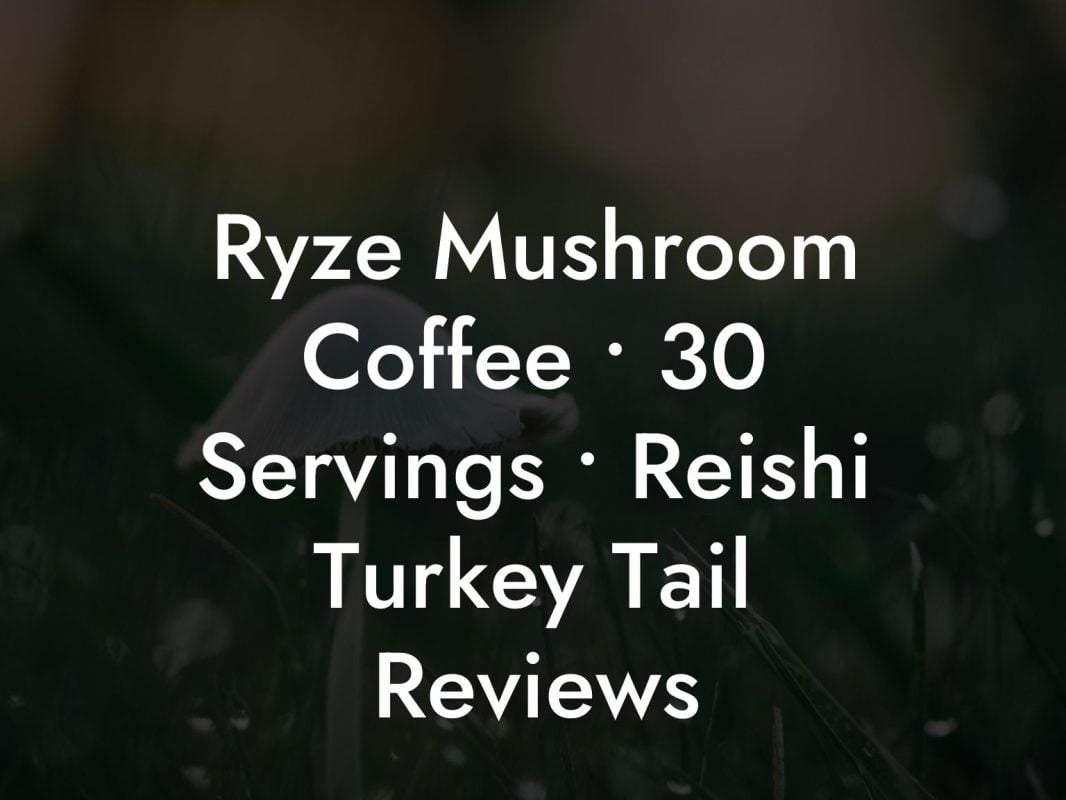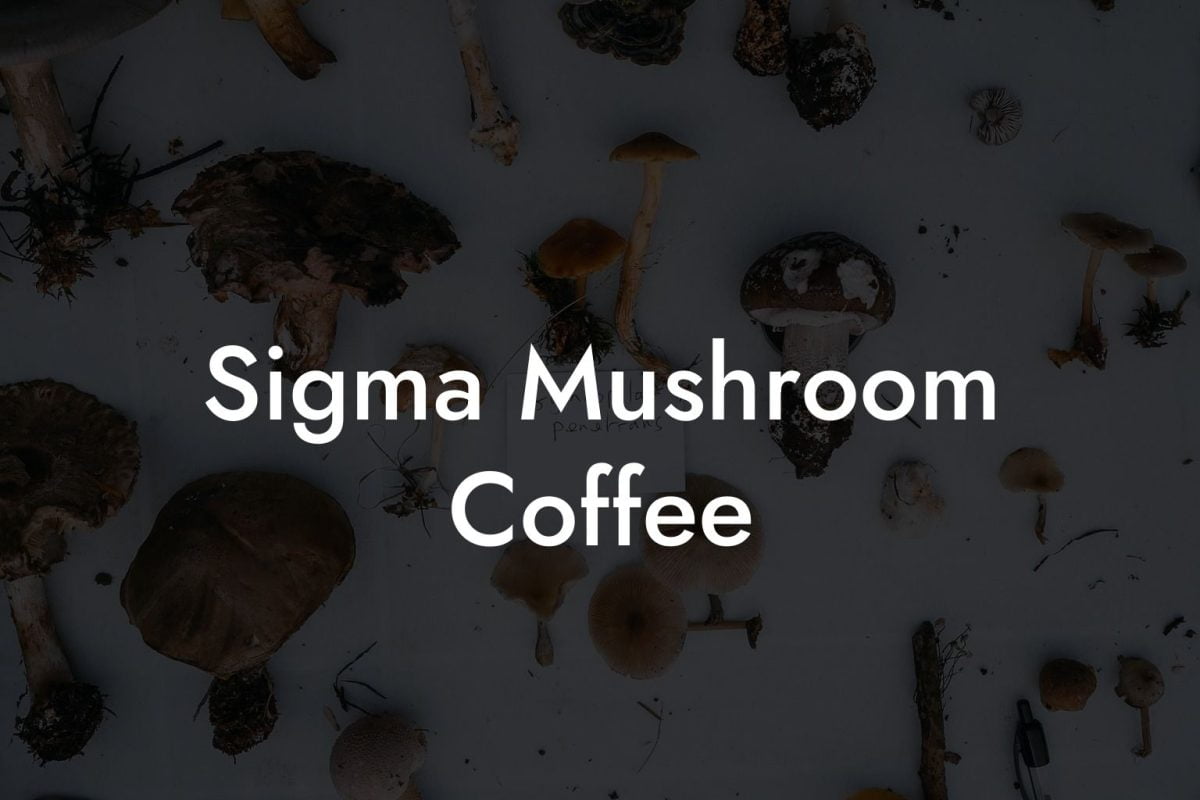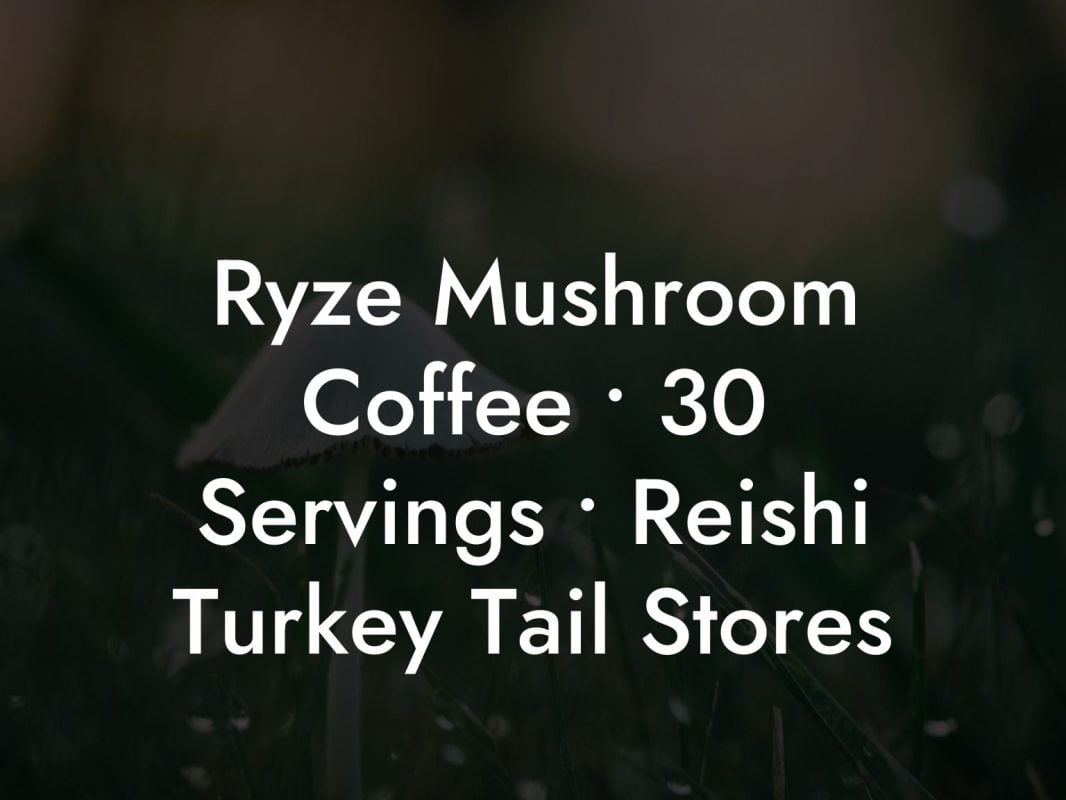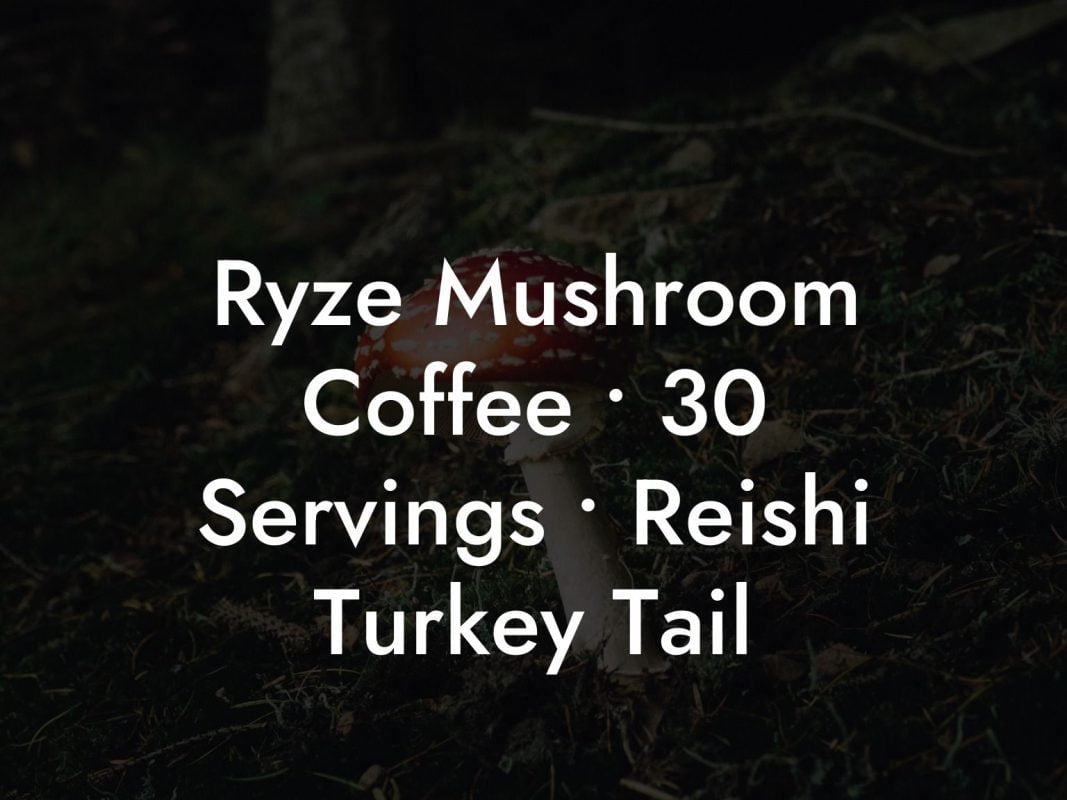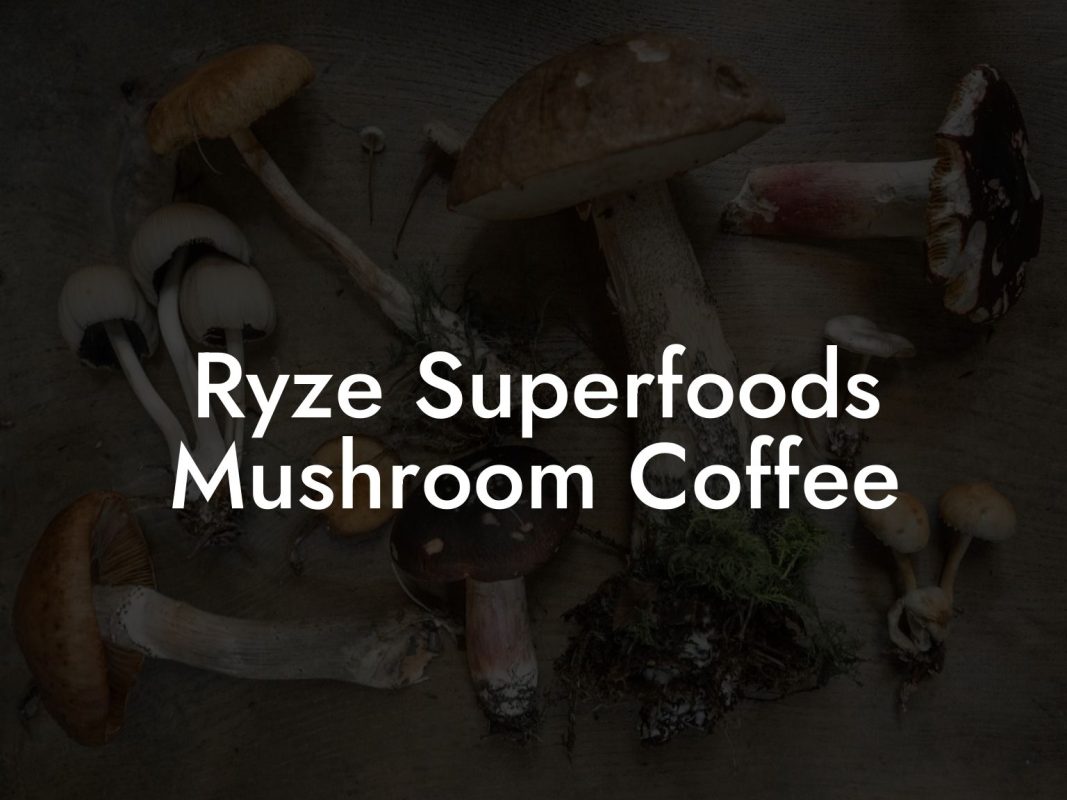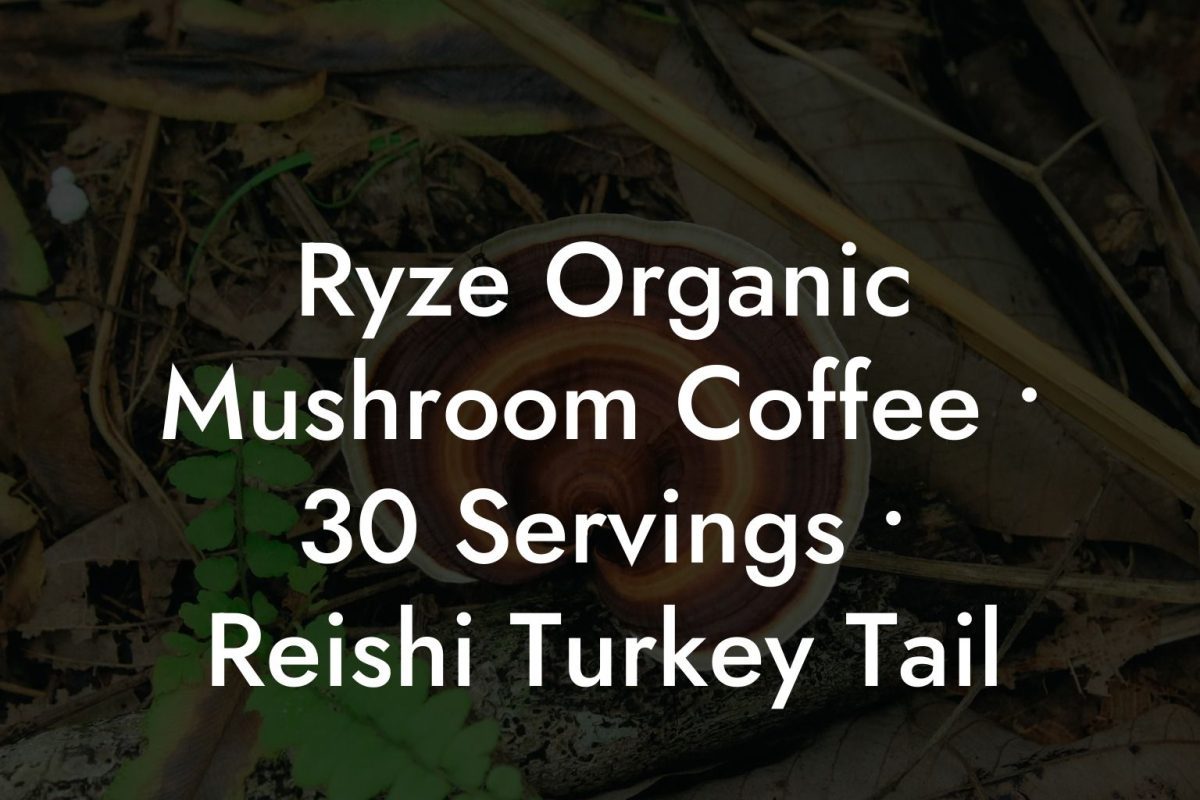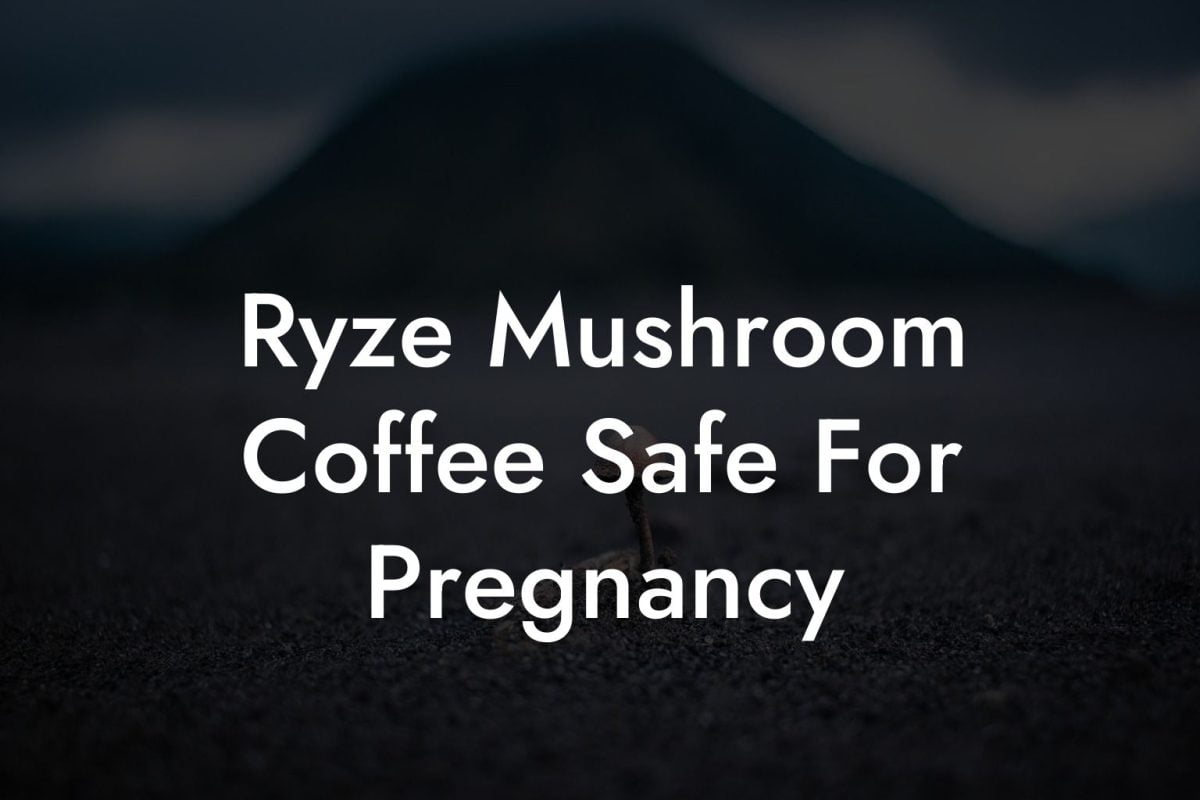Ever wondered if sippin’ on a warm cup of mushroom tea could be your new secret weapon for conquering the day? Picture this: a brew that not only wakes you up in the morning but also fuels your mind, bolsters your immune system, and even helps you chill out after a hectic day of scrolling through social feeds. Welcome to the universe of mushroom tea, a delicious, earthy infusion that’s been making waves among Gen Z and millennials alike. Whether you’re a wellness enthusiast or just on the lookout for a savvy, all-natural way to upgrade your daily routine, this in-depth guide will spill all the tea (pun absolutely intended) on what mushroom tea is good for, why it’s trending alongside its caffeinated cousin, mushroom coffee, and how it might just become your next favorite ritual.
Quick Links to Useful Sections
- What Exactly is Mushroom Tea?
- The Historical and Cultural Roots of Mushroom Tea
- The Science Behind the Magic: How Medicinal Mushrooms Work
- Beta-Glucans and Immune Support
- Polysaccharides: The Adaptogenic Heroes
- Triterpenes and Anti-Inflammatory Power
- Antioxidants for Cellular Defense
- Unveiling the Health Benefits: What Is Mushroom Tea Good For?
- Boosting Your Immunity
- Balancing Stress and Enhancing Mental Clarity
- Anti-Inflammatory Effects and Joint Support
- Enhancement of Cognitive Function
- Adaptogenic Properties for Overall Vitality
- Digestive Health and Gut Balance
- Antioxidant Support for Youthful Cells
- Mushroom Tea vs. Mushroom Coffee: What’s the Difference?
- Caffeine Content
- Flavor Profile and Experience
- Health and Wellness Goals
- Integrating Mushroom Tea into Your Daily Routine
- Morning Mindfulness
- Afternoon Reset
- Evening Wind-Down
- Enhancing Your Ritual
- Overcoming Common Misconceptions About Mushroom Tea
- It’s Just Another Trendy Fad
- It Tastes Like Fungus
- Only Hardcore Health Nuts Will Try It
- Mushroom Tea Recipes and Customization Ideas
- Basic Mushroom Tea Blend
- Mushroom Tea Latte
- Herbal Fusion Infusion
- Cold Brew Mushroom Tea
- Science-Backed Experiences: What Research Says About Medicinal Mushrooms
- Resources and Community Support: Your Next Steps
- Mushroom Tea: Real Stories from Real People
- The Busy Entrepreneur
- The Creative Soul
- The Wellness Explorer
- Mushroom Tea FAQs: Your Questions Answered
- Embracing the Ritual: Your Journey to a Healthier, More Vibrant Life with Mushroom Tea
What Exactly is Mushroom Tea?
Mushroom tea has been around in various forms for centuries, rooted in both ancient healing traditions and modern wellness trends. At its core, mushroom tea is an herbal infusion made from medicinal mushrooms like reishi, lion’s mane, chaga, and cordyceps, each known for their unique health-boosting properties. Unlike your standard herbal tea blend, these fungi packs a punch of adaptogens, antioxidants, and other bioactive compounds that work together to support your body in ways that go far beyond hydration.
Think of it as nature’s little health elixir. Whether brewed from dried whole mushrooms, powdered extracts, or even combined with traditional teas, mushroom tea offers a subtle, earthy flavor profile that’s both comforting and invigorating. And if you’re curious about mushroom coffee, another trend taking the wellness world by storm, mushroom tea is its gentler, less caffeinated cousin that appeals to those who prefer a smoother, more balanced energy boost.
Today, mushroom tea isn’t just about sipping a warm cup of nature’s goodness; it’s about embracing a holistic approach to well-being and mindful living. So, grab your favorite mug and get ready to explore the ins and outs of this magical brew!
The Historical and Cultural Roots of Mushroom Tea
Before mushroom tea became the trendy wellness beverage of our times, it enjoyed a rich history steeped in traditional medicine. In Eastern cultures such as China, Japan, and Korea, medicinal mushrooms have been revered for thousands of years, often used in teas, broths, and elixirs to promote longevity, mental clarity, and overall vitality. Reishi mushrooms, in particular, are known as the “mushroom of immortality,” and have been a staple in herbal medicine practices aiming to balance the body’s qi (energy flow) for centuries.
Looking For The Best Mushroom Coffee? You'll Love These:
These ancient practices were not just about physical health, but also about fostering a deep connection with nature, a concept that resonates strongly with today’s holistic and integrative wellness approaches. Modern research has revisited these time-honored traditions, uncovering scientific evidence behind many of the claims. Now, mushroom tea has evolved, merging ancient wisdom with contemporary science, making it ripe for exploration by a new generation keen on natural, sustainable health solutions.
Whether you’re a history buff or just someone with an interest in alternative medicine, the story of mushroom tea is a testament to the enduring power of natural remedies. It’s a living bridge between the past and the present, inviting us to tap into a reservoir of botanical wisdom and energetic healing that has stood the test of time.
The Science Behind the Magic: How Medicinal Mushrooms Work
At the heart of mushroom tea’s benefits lie bioactive compounds that are as fascinating as they are beneficial. Medicinal mushrooms contain a whole host of compounds like beta-glucans, polysaccharides, triterpenes, and antioxidants that work synergistically to support various aspects of health. Let’s break down some of the science behind these super shrooms:
Beta-Glucans and Immune Support
One of the key players in mushroom tea’s immune-boosting arsenal is beta-glucans. These naturally occurring sugars help modulate the immune system by enhancing the activity of white blood cells, which are vital for defending your body against infections. Studies suggest that beta-glucans can improve immune responses, making mushroom tea a promising ally during cold and flu seasons or whenever your immune system needs a little extra support.
Polysaccharides: The Adaptogenic Heroes
Adaptogens are substances that help your body adapt to stress, and many medicinal mushrooms fall under this category. The polysaccharides found in mushrooms work to balance cortisol levels and promote resilience against stressors, whether they’re physical, emotional, or environmental. In today’s hectic world, this balancing act can translate to improved mood, better sleep, and a more centered state of mind.
Triterpenes and Anti-Inflammatory Power
Inflammation is a natural response in our bodies, but chronic inflammation can contribute to a host of health issues. Enter triterpenes, compounds known for their anti-inflammatory properties that can help keep inflammation in check. By mitigating chronic inflammation, mushroom tea can contribute to better heart health, improved joint function, and even enhanced brain health by reducing inflammation in neural tissues.
Antioxidants for Cellular Defense
Oxidative stress, a condition where free radicals cause cellular damage, is linked to numerous health problems including aging, cancer, and neurodegenerative diseases. Many medicinal mushrooms are high in antioxidants, which protect cells by neutralizing these harmful free radicals. Drinking mushroom tea regularly is a proactive way to bolster your body’s natural defense mechanisms against the oxidative stress of everyday life.
With this powerful blend of natural compounds, it’s no wonder that mushroom tea is turning heads in the wellness community. Whether your goal is to boost immunity, manage stress, or simply enjoy a tasty, healthful beverage, the science behind mushroom tea gives it a solid foundation worth toasting to, one sip at a time.
Unveiling the Health Benefits: What Is Mushroom Tea Good For?
Okay, so we know mushroom tea is steeped in history and backed by some awesome science. But let’s dive into the real question: What is mushroom tea good for? If you’ve been scratching your head wondering if this brew can really transform your wellness game, here are some of the top benefits that have our community buzzing:
Boosting Your Immunity
In today’s world, a robust immune system is like having a personal bodyguard against pesky bugs and infections. Thanks to the beta-glucans and antioxidants found in medicinal mushrooms, mushroom tea can help fortify your immune defenses. A daily cuppa might just give your immune cells the kick-start they need to fend off seasonal snuffles and other common ailments.
Balancing Stress and Enhancing Mental Clarity
With the pressures of modern life, deadlines, social media overload, and the hustle culture, stress has become almost a ubiquitous part of daily living. Certain mushroom varieties, like lion’s mane and reishi, are renowned for their adaptogenic properties that help your body cope with stress. By regulating cortisol and providing a gentle calming effect, these teas can help improve focus, reduce anxiety, and even enhance creativity. It’s like a mental reset button in a cup.
Anti-Inflammatory Effects and Joint Support
Chronic inflammation is a silent adversary linked to a host of health issues, from joint pain to cardiovascular problems. The anti-inflammatory compounds in mushrooms, particularly triterpenes, work to temper this inflammation, potentially easing joint discomfort and supporting overall mobility. For those of you who love to stay active, whether you’re hitting the gym or dancing through your day, this benefit translates to a smoother, more comfortable ride.
Enhancement of Cognitive Function
Ever felt that midday brain fog slowing you down? Mushroom tea, especially when brewed with lion’s mane, has been celebrated for its potential neuroprotective benefits. Lion’s mane in particular is believed to stimulate nerve growth factor (NGF), supporting brain health and cognitive function. Regular consumption might help sharpen your focus, improve memory, and keep your creative juices flowing, even during those long work sessions or study marathons.
Adaptogenic Properties for Overall Vitality
Adaptogens are the unsung heroes of the wellness world, and medicinal mushrooms are among the most potent adaptogenic agents out there. By helping the body adapt to stress and maintain balance, these teas support energy levels, promote restful sleep, and enhance overall vitality. It’s like having nature’s very own multivitamin brewed into your steaming cup of tea.
Digestive Health and Gut Balance
A healthy gut is the cornerstone of overall wellness, and some medicinal mushrooms have prebiotic benefits. The natural fibers found in mushrooms help nurture the friendly bacteria in your digestive tract, promoting improved digestion and a balanced gut microbiome. In a world where gut health is increasingly recognized as a key indicator of overall wellness, mushroom tea offers yet another reason to sip mindfully.
Antioxidant Support for Youthful Cells
Free radicals are constantly buzzing around, causing oxidative stress that accelerates aging. The rich antioxidant profile in mushroom tea helps neutralize these unstable molecules, which may contribute to a more youthful appearance and improved cellular health. This isn’t just about vanity, it’s about supporting your body’s long-term resilience against environmental and lifestyle stressors.
In essence, mushroom tea serves as a multi-tasking elixir that addresses a spectrum of health concerns, from boosting your immune system to fine-tuning your mental clarity. And with so many potential benefits, it’s no wonder that this earthy infusion is earning its place in the daily routines of wellness aficionados around the world.
Mushroom Tea vs. Mushroom Coffee: What’s the Difference?
If you’re someone who loves experimenting with alternative beverages, you’ve probably noticed the rising popularity of both mushroom tea and mushroom coffee. While they share a common ingredient, the magical medicinal mushrooms, the two differ in taste, preparation, and even how they affect your body.
Caffeine Content
Traditional coffee is known for its rich caffeine jolt, which helps wake you up and keeps you alert. Mushroom coffee typically blends caffeine with mushroom extracts, offering a tempered energy boost without the infamous jitters or energy crash. Mushroom tea, on the other hand, generally contains little to no caffeine (unless you blend it with other caffeinated teas), making it a perfect choice for those late evenings when you still want to relax without inhibiting sleep.
Flavor Profile and Experience
Mushroom tea carries a distinct earthy, umami flavor that can be both grounding and soothing. Its subtle taste makes it well-suited for those who enjoy a more calming, ritualistic beverage experience. Mushroom coffee, while offering similar health benefits, tends to have a bolder, richer flavor thanks to the coffee base. Depending on your mood and the time of day, you might opt for one over the other, mushroom coffee for an energizing morning boost, and mushroom tea for a relaxing, meditative afternoon or evening ritual.
Health and Wellness Goals
If your primary goal is to manage stress, improve sleep quality, or simply get in tune with your body’s natural rhythms, mushroom tea might be the way to go. Its low-caffeine profile and calming properties make it a staple for evening rituals and mindfulness practices. Conversely, if you need that extra push to power through your morning or a demanding workday while still reaping the benefits of medicinal mushrooms, mushroom coffee could be the ideal pick-me-up.
Ultimately, whether you choose mushroom tea or mushroom coffee comes down to your personal health goals and taste preferences. Both beverages showcase the versatility of medicinal mushrooms, each providing unique pathways to well-being in a modern, fast-paced world.
Integrating Mushroom Tea into Your Daily Routine
Ready to embark on your mushroom tea journey? Incorporating this earthy infusion into your daily routine is all about balance and experimentation. Here are a few practical tips to help you make the most of your mushroom tea experience:
Morning Mindfulness
Start your day with a mindful cup of mushroom tea to set a calm, grounded tone. Rather than reaching for an overly caffeinated beverage, brew a cup of reishi or lion’s mane tea and take a moment, whether it’s during your morning commute or a few minutes of meditation, to focus on your intentions for the day.
Afternoon Reset
Feeling the mid-afternoon slump? Replace that sugary energy drink with a refreshing cup of mushroom tea. The adaptogenic properties can help stabilize your mood and energy levels, giving you a natural pick-me-up without the notorious crash.
Evening Wind-Down
As the day winds down, switch to a caffeine-free mushroom blend that promotes relaxation and prepares your body for a restful night’s sleep. Sipping on a warm cup of reishi tea can be a soothing ritual to end the day, easing away the accumulated stresses of modern living.
Enhancing Your Ritual
Consider pairing your mushroom tea with other wellness practices. Some people enjoy a light meditation, journaling, or even a gentle yoga session as part of their tea ritual. By combining the calming properties of mushroom tea with mindful activities, you create a holistic routine that nurtures both body and mind.
These small, intentional adjustments to your daily routine can make mushroom tea not just a beverage but an integral part of your self-care toolkit, a natural way to stay balanced, centered, and authentically energized.
Overcoming Common Misconceptions About Mushroom Tea
Despite its growing popularity, mushroom tea sometimes gets lumped into the “weird” or “alternative” category by those unfamiliar with its benefits. Let’s debunk some of the common myths and set the record straight:
It’s Just Another Trendy Fad
While it’s true that many wellness trends come and go, the use of medicinal mushrooms in herbal infusions has deep historical roots and a solid foundation in scientific research. The benefits aren’t just hype, they’re supported by both ancient practices and modern studies.
It Tastes Like Fungus
Sure, the word “mushroom” might conjure up images of earthy, intense flavors, but when prepared correctly, mushroom tea offers a balanced, nuanced taste. Many blends are formulated to complement the natural earthy tones with hints of natural sweetness or floral aromatics, making it an enjoyable beverage even for those who aren’t typically fans of mushrooms.
Only Hardcore Health Nuts Will Try It
Mushroom tea is increasingly appealing to anyone who wants a natural, effective way to enhance their well-being. It’s not just for the wellness elite or holistic healers, it’s for anyone who’s curious about exploring natural remedies that support modern lifestyles without complicated routines or extreme commitments.
By understanding the science and history behind mushroom tea, along with its practical benefits, you can confidently incorporate this brew into your daily routine without second-guessing its legitimacy.
Mushroom Tea Recipes and Customization Ideas
One of the best parts about mushroom tea is how versatile it can be in your kitchen. If you’re the creative type who loves experimenting with recipes, here are some ideas to customize your brew for both taste and enhanced benefits:
Basic Mushroom Tea Blend
Start simple by steeping your favorite medicinal mushroom powder or dried herbs in hot water for 5-10 minutes. Add a dash of honey or maple syrup to sweeten, and squeeze in a bit of lemon for a vitamin C boost. This straightforward recipe is perfect for new users who want to ease into the experience.
Mushroom Tea Latte
For a richer, creamier beverage, try making a mushroom tea latte. Brew a concentrated batch of your chosen mushroom tea, then mix it with steamed almond or oat milk. Sprinkle a pinch of cinnamon or turmeric on top for an extra anti-inflammatory kick, and enjoy during those chilly mornings or as a soothing afternoon treat.
Herbal Fusion Infusion
Elevate your brew by mixing in other herbal teas like chamomile, mint, or ginger. Not only do these additions amplify flavor profiles, but they also contribute their own unique health benefits, from improved digestion to enhanced relaxation.
Cold Brew Mushroom Tea
When the weather heats up, why not try a cold brew version? Simply mix your mushroom tea concentrate with cold water, add ice, and let it steep in the fridge for a few hours. This refreshing variation is ideal for post-workout hydration and recharging on a hot summer day.
With these recipes, you have the flexibility to tailor your mushroom tea experience to your own taste and lifestyle, ensuring that every cup is not only healing but also fun and satisfying.
Science-Backed Experiences: What Research Says About Medicinal Mushrooms
The growing body of research on medicinal mushrooms provides a robust backing to many of the health claims associated with mushroom tea. Universities and research institutions around the world are investigating how components like beta-glucans, triterpenes, and polysaccharides can impact everything from immune functioning to cognitive performance.
Studies on reishi suggest that its compounds can improve sleep quality and reduce stress levels in individuals with chronic anxiety. Meanwhile, lion’s mane research points to promising effects in boosting nerve growth factors, which may aid in cognitive enhancement and memory retention. And let’s not forget chaga, whose antioxidant profile is being recognized for its role in fighting oxidative damage at the cellular level.
While more clinical research is certainly needed to fully understand the breadth of these benefits, the preliminary findings are encouraging. They support what centuries of traditional medicine have long known: that these naturally occurring fungi carry a host of properties designed to support a robust, balanced, and vibrant life.
Resources and Community Support: Your Next Steps
Stepping into the world of mushroom tea can feel both exciting and overwhelming, especially with all the wellness trends vying for your attention. The good news is that you don’t have to navigate this journey alone. There’s a vibrant community of enthusiasts and experts who are eager to share tips, recipes, and personal experiences.
Consider joining online forums, wellness Facebook groups, or even local herbal meetups where you can swap brew ideas and success stories. Many specialty stores and holistic nutritionists also offer workshops on medicinal mushrooms, where you can deepen your understanding and ask questions directly.
Additionally, there’s a wealth of resources available online, from scholarly articles on the benefits of medicinal mushrooms to detailed blogs by leading health influencers. Utilizing platforms like YouTube for recipe demos or Instagram for quick wellness hacks can help you stay engaged and inspired. Embrace the journey as an opportunity to not only improve your health but also connect with a community that shares your passion for genuine, nature-based solutions.
Your next steps might include trying a basic mushroom tea recipe at home, subscribing to a wellness newsletter, or even visiting your local herbal shop for a personalized consultation. Each step you take is a move toward a more balanced and vibrant lifestyle.
Mushroom Tea: Real Stories from Real People
The transformative power of mushroom tea isn’t just theoretical, real people are experiencing real benefits every day. Consider these snapshots from folks who have embraced this ancient brew in their modern lives:
The Busy Entrepreneur
Alex, a 29-year-old tech startup founder, swears by his morning cup of lion’s mane mushroom tea. “Between investor meetings and marathon coding sessions, I needed something to keep my mind sharp without the jitters. Mushroom tea has become my quiet secret to maintaining focus all day long.”
The Creative Soul
Jamie, a freelance graphic designer, incorporated reishi mushroom tea into her evening routine. “My work is all about creativity and emotional balance. I find that a soothing cup of reishi helps me unwind and tap into my creative side without the usual stress markers clouding my vision.”
The Wellness Explorer
Taylor, an avid follower of holistic health trends, was curious about alternative ways to boost her immune system naturally. After adding a blend of chaga and reishi tea to her daily ritual, she noticed fewer colds during the winter and overall improved energy levels. “It’s like rebooting your body from the inside out,” Taylor enthuses.
These testimonials are just a few examples of how integrating mushroom tea into a daily routine can lead to noticeable improvements in energy, focus, and overall well-being.
Mushroom Tea FAQs: Your Questions Answered
We know you might have some burning questions about mushroom tea and its myriad benefits. Here’s a roundup of frequently asked questions that cover everything from preparation tips to its health advantages.
1. What is mushroom tea made from?
Mushroom tea is typically made by steeping medicinal mushrooms, such as reishi, lion’s mane, chaga, and cordyceps, in hot water. You can use dried mushrooms, powdered extracts, or pre-made blends to create the infusion.
2. How does mushroom tea improve immunity?
Medicinal mushrooms are rich in beta-glucans and antioxidants, which help to stimulate and support the immune system. Regular consumption can bolster your body’s defense mechanisms against infections.
3. Can mushroom tea help reduce stress?
Yes, many medicinal mushrooms possess adaptogenic properties that help regulate stress hormones like cortisol, leading to a calmer, more balanced mind.
4. Is mushroom tea safe for everyone?
Generally, mushroom tea is safe for most people. However, those with specific allergies or medical conditions should consult a healthcare professional before incorporating it into their routine.
5. How often should I drink mushroom tea?
You can enjoy mushroom tea daily as part of your wellness routine. Many users start with one cup in the morning and another in the evening, adjusting the frequency based on how their body responds.
6. What’s the difference between mushroom tea and mushroom coffee?
Mushroom tea is a gentle infusion with little to no caffeine, making it ideal for relaxation and stress management. Mushroom coffee blends mushrooms with regular coffee, delivering an energy boost with the benefits of adaptogens.
7. Can I mix mushroom tea with other herbal teas?
Absolutely! Blending mushroom tea with herbs like chamomile, mint, or ginger can enhance both the flavor and health benefits, creating a customized brew that suits your taste.
8. Does mushroom tea taste good?
The flavor of mushroom tea is earthy and nuanced. Many find it pleasantly robust, especially when sweetened naturally or blended with other herbs. It may take a few tries to appreciate its unique flavor profile, but once you do, it’s hard to go back!
9. Can mushroom tea help with cognitive function?
Yes, particularly blends with lion’s mane are noted for their potential neuroprotective benefits. These teas may help enhance focus, memory, and overall brain health.
10. Where can I buy quality mushroom tea?
High-quality mushroom tea can be found at specialty health food stores, organic markets, or reputable online retailers dedicated to natural wellness products.
Embracing the Ritual: Your Journey to a Healthier, More Vibrant Life with Mushroom Tea
In a world saturated with quick fixes and fleeting trends, mushroom tea stands out as a timeless, natural way to nurture your body, mind, and soul. It’s more than just a beverage, it’s a daily ritual, a mindful pause in the rush of modern life, and a celebration of nature’s wisdom.
By incorporating mushroom tea into your routine, you’re tapping into ancient healing traditions while embracing modern science that validates its many benefits. Whether you’re seeking enhanced immunity, a natural way to manage stress, or improved cognitive clarity, this earthy infusion offers a holistic approach to well-being that resonates with the dynamic lifestyles of Gen Z and millennials.
Every cup invites a moment of pause, a chance to reflect, reset, and recharge. Let the rich, earthy flavors of your brew transport you to a state of calm and centered awareness, empowering you to face the day with vitality and confidence.
So why not take a sip, explore the flavors, and see firsthand what mushroom tea is good for? Embrace this journey with openness and curiosity, and allow nature’s bounty to enhance your health, creativity, and overall zest for life.
Your path to a more vibrant existence starts with that very first cup. Cheers to health, mindfulness, and the transformative power of mushroom tea!
Looking For The Best Mushroom Coffee? You'll Love These:
Useful Interruption: Dive deeper into the world of Mushroom Coffee with our most popular sections. If there is anything you think is missing or anything you would love for us to write about, just give us a shout.
- Mushroom Coffee Equipment & Product Reviews
- Mushroom Coffee Recipes & Creative Variations
- Mushroom Coffee Guides & Troubleshooting
- Mushroom Coffee Brewing & Preparation Techniques
- Model Rocket Advanced Rocketry & Innovations
- Mushroom Coffee Fundamentals
- Model Rocket Equipment Reviews & Digital Tools
- Mushroom Coffee Health Benefits & Wellness
- Mushroom Coffee Mycology & Scientific Insights
- Mushroom Coffee Community, Lifestyle & Engagement
I tried mushroom coffee this morning and told my friend, "This brew is spore-tacular!" He shot back, "Guess that's why it's such a cap-tivating way to kickstart your day!"

